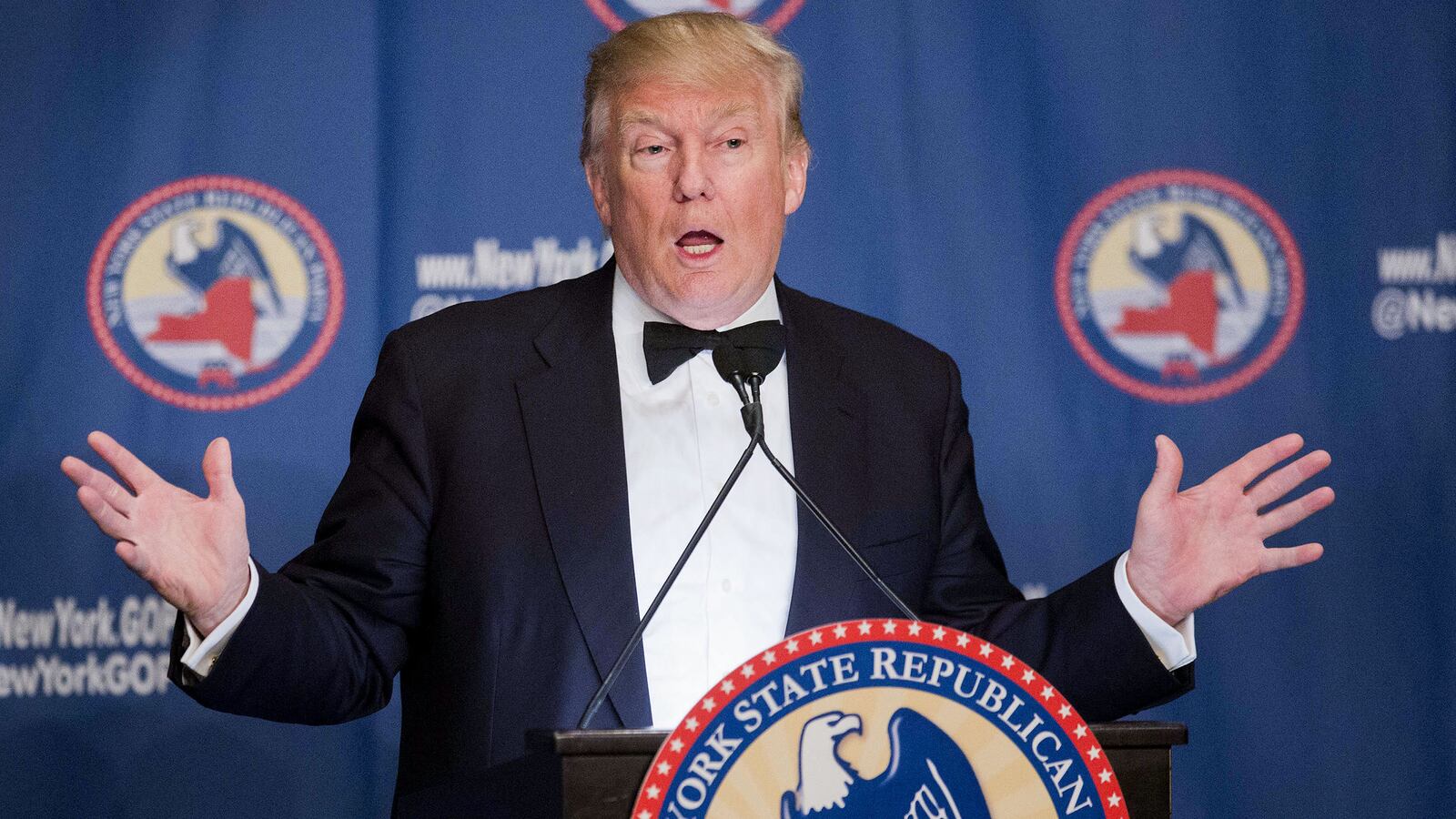The crowd outside stretched far across 42nd Street, and police lined the sidewalk as if preparing for an invasion. The protesters called him a racist and held signs that read BEAT UP TRUMP and NO FUCKING FASCIST! Dozens of them were arrested.
But inside the Grand Hyatt hotel, the man they were raging against was hard to find.
In the ballroom, its ceiling opulently outfitted with copper-colored glass, the New York Republican Party was holding its annual gala, and Donald Trump, the first of the three presidential candidates to speak, was on his best behavior.
Maybe it was the tux.
“You know, I thought I’d do something a little different,” Trump began.
As the audience of 800 drank wine and picked at their salads, which had cost them each $1,000 and required that they go through metal detectors in their gowns and dinner jackets, Trump opted out of his usual stump speech—a haphazard string of insults, poll numbers, and tirades against the media—and instead talked for 23 minutes about the New York City he helped shape.
“I love speaking at the Grand Hyatt,” he said, “because I built it.”
Forty-second and Lex was once home to the Commodore Hotel, which opened in 1919 and had, by 1976, seen better, more profitable days.
“It was a mess,” Trump told the crowd. “They had a spa called ‘Relaxation Plus,’ but nobody ever got into what the ‘plus’ meant.”
Trump bought the property and transformed it into a shiny glass behemoth—his first of many such structures in this city. (He was bought out of the building in 1996).
At another point, Trump reminisced about buying a building downtown in the throes of “the depression—literally a depression” in the early 1990s (there was no economic depression in the 1990s). “When I opened, it was like the world had changed,” he said.
Private construction is not the first topic that comes to mind when you imagine a presidential candidate’s speech. But for Trump, his buildings are evidence that he can get things done, and the context doesn’t much matter. In order to achieve success, in Trump’s view, you need to be able to measure it in stories.
Which is not to say that he shied away from politics completely.
Trump enjoys 65 percent favorability in New York, according to a Public Policy Polling poll released April 12, and a 31.9 percent lead on John Kasich—53.8 to 21.9—in the Real Clear Politics average.
The audience at the Hyatt laughed with Trump and applauded for him, but they also just seemed to understand who he is. And he understands them, which seems like the best explanation for why he did away with his usual shtick and talked to them as equals.
At one point, he did mock poor Jeb Bush, who isn’t even a candidate anymore, by saying he should move to New York City to improve his low energy, but the schoolboy humor was kept to a minimum.
Later, Trump spent some time discussing “New York values,” that unfortunate phrase Ted Cruz, his central rival for the nomination, chose to deploy as an insult against him a few months back.
“I want to just talk, just for a second, about New York values,” Trump said.
The crowd cheered.
“It’s just one of those things," he said.
But he didn’t need to remind the audience to dislike Cruz.
When the Texas senator arrived onstage in a tux with a lopsided bow tie, some people just left.
Others talked loudly over him and clanked their silverware as they ate their entrees.
A few stared down at their phones.
“I will admit to you,” he said, “I haven’t built any buildings in New York City.”






